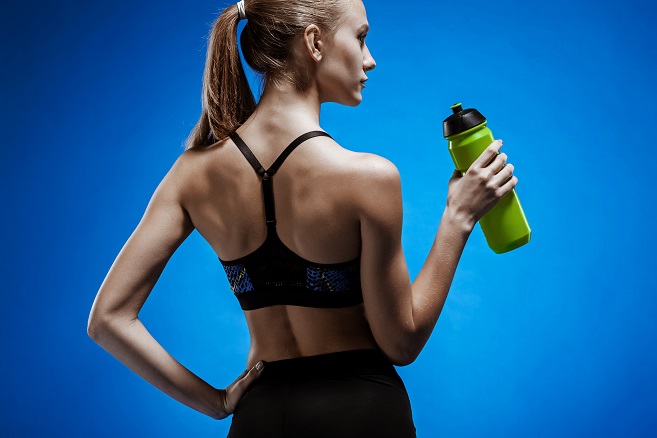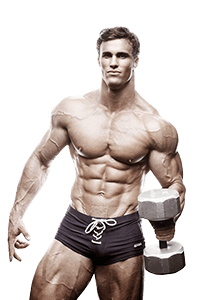All About The Benefits Of Hydration
All About The Benefits Of Hydration
In the world of amateur and professional sports, especially in weight-related categories, dehydration is often seen as an effective way to get rid of the last few pounds. In fact, elite athletes and bodybuilders often try to cut down on their water weight by trying all kinds of proven and unproven methods. However, it should always be noted that the human body must always be hydrated to perform to its full potential.

Importance Of Water
- Serves as a vital component of our blood, bones, muscles, and brain.
- Transports vital nutrients, oxygen, and glucose into muscles.
- Removes metabolic byproducts such as carbon dioxide from muscles that work hard.
- Regulates the temperature of the body, particularly during high-intensity bouts when the human body generates 20-25x more heat during a resting phase.
Even with these and many other benefits, staying hydrated and drinking water are some of the most disregarded concepts in the world of fitness and bodybuilding. It's no surprise that a staggering 40-44 percent of fitness enthusiasts, bodybuilders, and regular gym-goers are dehydrated during their weight training, cardio sessions, or gym workouts.
It is important to note here that dehydration can lead to fatigue, headaches, muscle cramps, and low performance. Moreover, dehydration can in some cases lead to muscle loss that can severely impact muscle growth, healing, and recovery processes. It has also been proven by studies that reducing the consumption of fluid intake can also be a reason behind an increased risk for injuries, low power output, and increased fatigue rates.
A study appearing in the European Journal of Applied Physiology disclosed that participants who lost approximately 3 percent of their water weight found it difficult to complete as many reps as those who didn’t.
How Much Fluid Do We Need?
The ideal intake of fluids for men is 16 cups or 125 ounces every day. Conversely, women require 11 cups or 90 ounces of fluids every day. The exact quantity of fluids you need depends on factors such as how much water you lose via sweat.
The best thing is that you don't have to always count on simple and plain water to stay hydrated. You can even sip milk, fresh juice, protein shakes, or some BCAAs.
- You should avoid the intake of large amounts of water at a single instance. This is primarily because it may slow down the digestion and absorption of fluids which, in turn, will leave you with a gut full of fluids or a health condition known as hyponatremia (overhydration). Also, the intake of excess water at one time can result in the dilution of electrolytes (sodium and potassium) to dangerous levels.
- Athletes who have to undergo outdoor training in extreme weather conditions or those engaging in long-duration strength or weight training with limited water breaks should make it a point to add glycerol to their fluid choices.
- If the color of your urine is dark yellow, amber, light orange, orange, dark orange/brown, pink, red, green, blue, dark brown/black, or white/milky, you should immediately contact your doctor.
Other factors influencing Hydration
- Altitude: You can be a likely candidate for hydration if you climb in elevation. This is primarily because the low humidity coupled with reduced air pressure means moisture is getting evaporated at a greater pace from your skin. Moreover, there might be a considerable increase in the count of visits to the bathroom under such instances.
- Climate: Humid or hot climates can lead to a surge in water loss rates. When the air around you is humid in nature, there is a delay in evaporation and cooling associated with sweat at a quick pace as it generally does. In such cases, the temperature of our body increases substantially that, in turn, increases the requirement for more fluid intake. In circumstances when the air holds less moisture (usually in colder climates), fluid loss may happen and therefore more fluids may be required by the body.
- Level of activity: The duration and intensity of your strength training and gym workouts can have a direct and positive relationship to your fluid requirements. The longer the duration and the higher the intensity of your workouts, the more fluids your body will take to replace of everything that has been lost to sweating. Furthermore, your body will need more fluids if you use more muscle groups and energy.
When Is The Optimal Time To Consume Water?
It's best to feed your body with enough fluids during specific times of the day.
- Immediately after you wake up so your internal body organs are activated.
- Before you take a bath to lower blood pressure.
- 30-40 minutes before your meals to aid digestion and about 50-60 minutes later so your body can get sufficient time to absorb nutrients.
- Before you go to bed for any loss of fluid as you sleep.
- Don't wait till you feel thirsty. For this, you should best sip water throughout the day.
You can even spice up your hydration habits by adding natural flavors such as fresh fruits or herbs. Moreover, you can add water-rich foods such as zucchini, cucumber, grapefruits, strawberries, watermelon, and lettuce to your grocery shopping list.
With these good hydration habits by your side, you will have your energy levels up, metabolism running, skin glowing, and digestion in check. Proper hydration can also help you with muscle gain, muscle strength, and muscle growth. Moreover, you can avoid muscle breakdown, muscle soreness, and muscle fatigue by staying hydrated throughout the day.
All in all, staying hydration doesn't always have to be complicated. By following simple tips, you can experience optimal performance in the gym.




